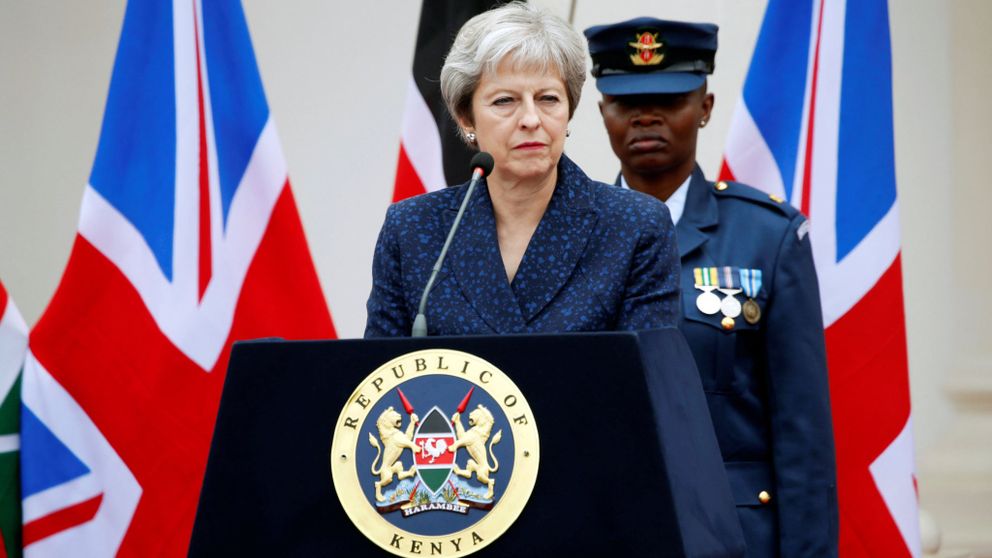Our prime minister, Theresa May, recently returned from her tour d’Afrique. On her whistle-stop tour, Mrs. May intentionally overshot Europe and landed with her business posse in South Africa, Kenya and Nigeria for three days to highlight a desperate mix of pre-post-Brexit blues and a seemingly cynically charged future partnership arrangement with swathes of the continent. But what brought May there? Indeed, there was a method to May amidst a backdrop of competing international players and a sudden realization that we need to ramp up the state-level networking events for a post-Brexit Britain.
May’s visit was the first time in eight years since a sitting prime minister held an official visit to the often-overlooked continent. Britain, however, was not just keeping face on the PM’s visit. It also had to recognise that it has neglected these lands for far too long as Kenyan president, Uhuru Kenyatta, told Mrs. May during a shared press conference. Having lived in France this past year, it is noteworthy that the French press and by extension the French political classes have assumed a considerably more active role in Africa several years earlier than their British counterparts. France, Germany and other European countries began this to stem the flow of refugees and migrants from North Africa at the source. This featured foreign investment, aid, and military operations to eradicate Islamic terrorism. The most notable examples being Mali and the Sahel. On the other hand, the U.K. did not have to commit as many resources to this end due to its political and physical detachment from the European mainland.
What drew the U.K. back to Africa, however, is the growing competition it has with France and China. We all recognize that China is now a world superpower. To match its expansionist visions, China hopes to render the South China Sea indisputably Chinese through the creation of new islands and gradual appropriation of the Spratly Islands. It also plans to utilize its naval base in the small African state of Djibouti and reaffirm Chinese interest along volatile bottle-neck trade routes. Geopolitics dictates China’s interest in Africa. The Communist state interacts with countries with no outstanding tradition for human rights and furthermore with authoritarian leaders who share no enthusiasm for such Western trivialities. Bearing this and a growing Chinese middle-class in mind, China amassed an 18% market share in Africa by 2017 compared to 3% in 2001. Meanwhile, France fell from an 11% market share in 2003 to 5% in 2017. This reflects a serious tip in the balance of power in Africa in a continent where Britain and France historically maintained spheres of influence through imperial colonies.

A change of tone was registered publicly last year by the French president, Emmanuel Macron where he delivered a speech to an audience of students in Burkina Faso’s capital Ouagadougou last November. He promised to increase France’s international aid budget to 0.55% of GDP. He also promised to adopt “a new method, a new word, a new philosophy” to evaluate its allocation. Marking a new pragmatic political policy towards Africa, he continued to say that he was “from a generation which doesn’t dictate what Africa must do, what the states’ rules are but encourages wherever possible those who take on their responsibilities.”
Theresa May delivered similar thoughts touting a change in policy to the scope of British international aid. Theresa May killed two birds with one stone here by leveling the ideological playing field with its regional competitors and appealing to the likes of the Conservative right. The Department for International Development will now de facto act as an extension of Liam Fox’s own Department for International Trade falling in line with Mrs. May’s demand to “put our development budget and expertise at the center of our partnership [and] support the private sector to take root and grow.” With this shift, 0.7% of the U.K. GDP can now be allocated to private sector investment in Africa to pursue economic growth, innovation, and development of infrastructure and industry.
Justified on paper, this can easily be seen as a crude and cynical re-diversion of British taxpayers’ money to facilitate favourable post-Brexit trade opportunities with the appearance of selflessness. We pride ourselves on our world-leading international aid budget and our institutionalized charities. Nevertheless, if geopolitics and our own economic security are to now dictate international aid policy, then this government is truly dishonest with itself over the ways and means it takes to ensure sustainable development and prosperity for Africa.
George Baines
(Main image credited to Sky News, 30th August 2018)

